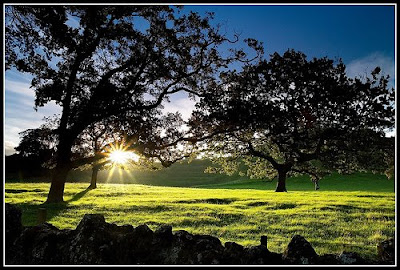
Dear friends, those believers who have learned most to live by faith, possess the richest part of the land of promise. Other believers live in the land of Egypt, and are often making bricks without straw, but these dwell in the land which floweth with milk and honey. They have passed the wilderness, and having believed, they have entered into rest. The lot of the truly full-grown believer who stays himself upon his God alone, is well set forth in the promise, “His soul shall dwell at ease, and his seed shall inherit the earth.” He has his troubles, but faith makes them light; he has his wants, but faith never permits him to call them wants, for they are always supplied before the necessity begins to pinch him. Other men may, with all their watching and wisdom, come to nothing; they may rise up early and sit up late, and eat the bread of carefulness, and yet be poor; but they who stay upon God in temporals and spirituals, if heaven should shake, and if the pillars of the earth should be moved, and the sea should be dried up, yet their place of defense shall be munitions of rocks, “their bread shall be given them, and their water shall be sure.”
See this on a large scale in the case of our dear brother Muller’s institution, at Bristol. [Referring to
George Müller.] We often see institutions sending out fresh begging appeals, there is some new claim upon their funds; the Lancashire distress has turned aside very much contribution from this object, and that society. Of course it is so, these societies usually lean on man, and rest upon an arm of flesh; but our Bristol brother, by prayer and faith makes known his wants unto God, and when does he want for any good thing? When needs he issue a begging appeal? Verily, I do believe that if all England were in famine, the orphan-house at Bristol would have sufficient. Whatever may happen, the Lord has promised to hear prayer, and he will honor faith: the cedars of Lebanon shall be full if all the trees of the plain be famished.
From a sermon entitled "The Cedars Of Lebanon," delivered September 13, 1863. Flickr photo by
Chris Gin; some rights reserved.


























